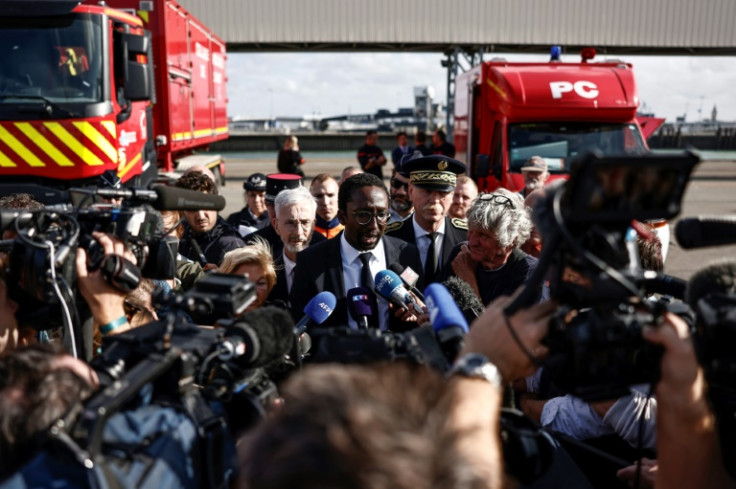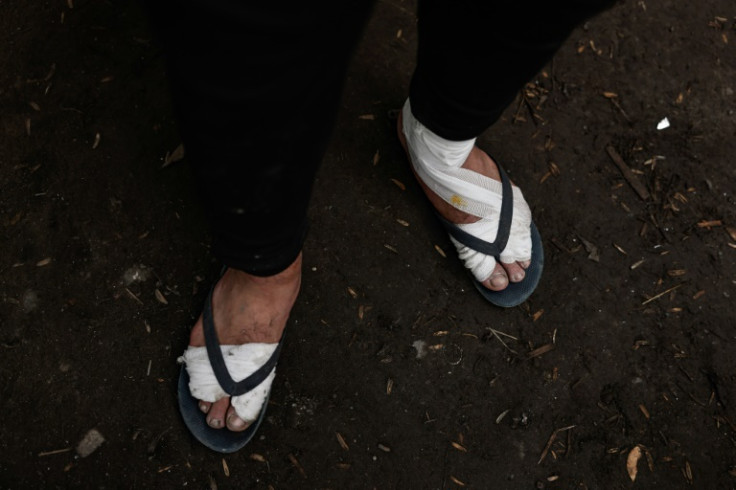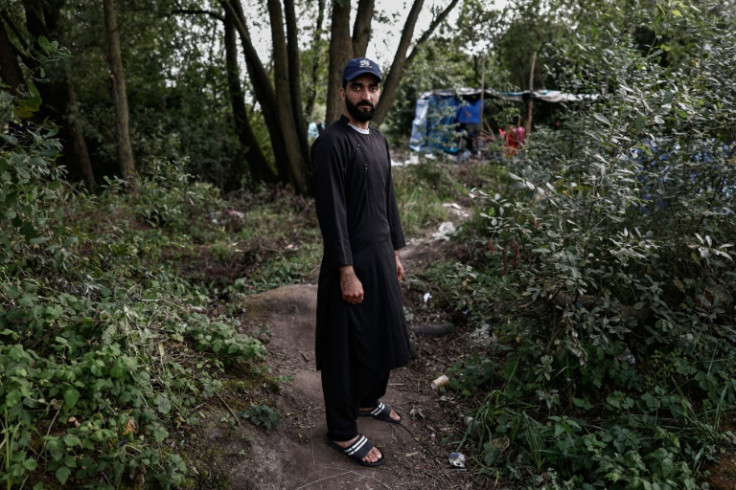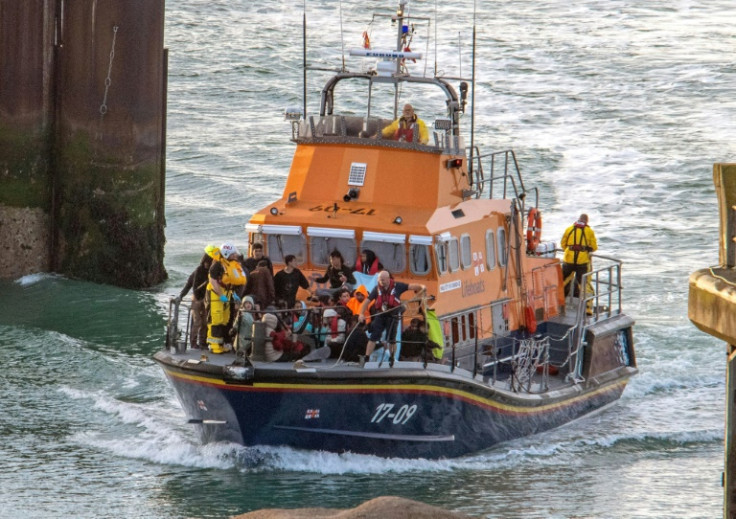Migrants On France's Channel Coast Undeterred By Latest Deaths

"Crossing the Channel, it's playing with our lives," Hajji Mahmud acknowledged.
But despite the dangers, the Afghan migrant remained determined to attempt the crossing, even after the deaths of at least six of his countrymen early Saturday when their vessel sank.
In the makeshift camp at Loon-Plage on the north coast of France, some 15 tents were scattered behind an embankment near a pile of burning rubbish.
Mahmud lives there with a group of other Afghans, some of them very young, and hoping for a better life in Britain.
"If we had a good life in Afghanistan, a good government, a good education system...," he said.
He entered the European Union through Croatia. What he would like, he says, is for the French and English police to help him cross the Channel without having to risk his life.
But he knows he won't get that.
"We'll suffer until we manage to cross," he said.
The French and English coastguard said two people were still missing late Saturday after this latest disaster, when the boat carrying more than 60 people capsized.
Many of those on board -- most of the around 60 people rescued -- were Afghans, like him, plus a few Sudanese people with them. A few of those on board were minors.
For France's State Secretary for the Sea Herve Berville, it was "a terrible human tragedy", adding to what is already a grim toll.
Five migrants died at sea and four went missing while trying to cross to Britain from France last year.
In November 2021, 27 migrants died when a boat capsized in the Channel.
But many migrants are still willing to risk the crossing. According to the authorities on the north coast of France, there are currently around a thousand people waiting to take their chance.
Bilal and Basir are two of them, camped out on an old canape installed under a tarpaulin sheet.
If their families knew about the latest sinking, they would never let them attempt the crossing, they said.
They had in fact meant to try to get across the previous night but they had missed the boat, they said. Nevertheless, they insisted they will try again.
"My sister, my uncle, are in England," said Basir, aged 22.
"My dream is to learn because we know English and we (would) like to learn in their universities, or college," said 20-year-old Bilal.
But 36-year-old Kurdish Iraqi exile Abu Mohamed admitted he was having second thoughts about risking the journey.
"If I see that it's very risky, I'm going to try to stay in France," he told AFP.
Some 30 kilometres away, at the French channel port of Calais, two 16-year-old Sudanese were among the survivors.
"In France, it's complicated for us," said one of them.
"There's racism, nobody wants us, we sleep in the street and nobody cares, we can't work."
They will keep trying to make the crossing to England, they told AFP, hopeful of reaching there safely and studying computing.
Saturday's deaths were "a predictable and avoidable drama", says Pierre Roques who works at the L'Auberge des Migrants ("Migrants Inn") -- an alliance of associations offering migrants support.
"The United Kingdom is moving towards completely extreme solutions to stop the crossing, which will have no effect apart from increasingly endangering people," he added.
He cited Britain's controversial plans to outlaw asylum claims by all arrivals via the Channel -- transferring them instead to third countries, such as Rwanda -- or the plan to house some migrants on barges off the coast, also fiercely by rights groups.
For the people he was working with, these policies add to their worries, but will not stop them risking the crossing.
"There will be other tragedies," said Regis Holy, captain of a lifeboat that brought five of the survivors back to Calais.
The migrants who had given everything to get this far, would keep risking everything to make the crossing.
"It will never stop," he warned.
The groups working with the migrants have repeatedly denounced the policy of the local authorities to regularly force the migrants from their makeshift camps, to keep them moving.
Jean-Claude Lenoir, who runs one such group, Salam, said 12 vans of riot police had dismantled at least four camps around Calais on Saturday.
Given what had happened, he argued, they might have spared them that -- especially since in his opinion those operations were pointless.
"The migrants go back to their places as soon as the police have left," he noted.




© Copyright AFP 2024. All rights reserved.





















